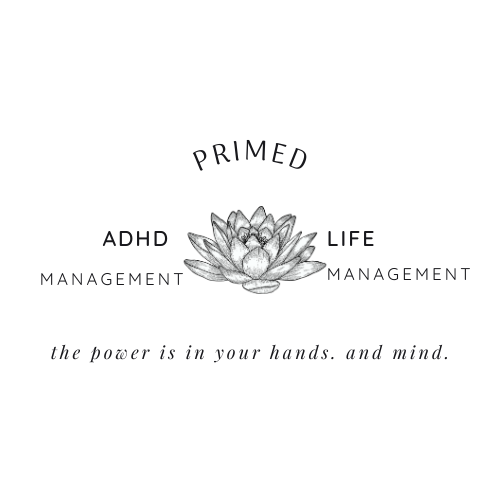
As I type this, it’s Christmas week. The holidays are particularly overwhelming.
We’re living in stressful times. All of us, neurodiverse and neurotypical alike.
Neurotypicals feel it differently. Those with ADHD experience life more intensely than neurotypicals
We have issues with emotional regulation and are more susceptible to meltdowns.
What is overwhelm?
Overwhelm is a feeling caused by a thought. A feeling is just a vibration in your body.
Remember: You are not your thoughts. You are not your overwhelm. You are not your ADHD.
I know your inner critic might tell you otherwise. Your inner critic is a jerk, and most of what it says is false. However, because our inner critic tends to be loud and frequent, we tend to believe it. Our inner critic contributes to overwhelm in many ways.
Why do we experience overwhelm?
The simplistic answer is that our brains work differently than those of neurotypicals. There are lots of reasons we experience overwhelm, but here are three:
For one, sensory overload. Interruptions and distractions are too much. The thought of all the things we have to do are too much. Life is too much.
Second, we tend to get tired more easily.
Third, we’re harder on ourselves. Like I’ve already said, the inner critics – those I call the Gremlins – in an ADHD mind are loud.
How to deal with overwhelm.
1.) Mind dump
I’m always a fan of journalling and doing a brain dump. As I wrote in my post about ADHD and emotions:
“When emotions have you in a headlock, and you’re stuck in the downward spiral, journal.
Journal some more.
Write it down. Write your triggers and your resulting emotions. Get the garbage out on the page.”
A lot of the advice in that post is valid here too.
Get it all out on the page: your thoughts, frustrations, fears, all of it.
Ask yourself why you’re having these thoughts. Investigate their origin. Whose voice are they in? Are they valid? Are they completely false?
2.) Self-care – you have my permission to nap
Shut it all down. Take a mental health day or afternoon. Watch a show. Have a candlelit bath. Have a nap. Eat something. Do what you need to do to take care of yourself. Oftentimes, those with neurodevelopmental issues get crankier when they’re tired and hungry.
Breathe. Deep breaths.
3.) Phone a friend
Call a friend who thinks you’re awesome. Get moral support.
If you’re overwhelmed because your mind is barraging you with your to-do list…
4.) Reframe
One of my favourite, simple tools is to rephrase “I have to” as “I get to.”
“I have to cook dinner.” becomes, “I get to cook dinner.”
“I have to workout” becomes, “I get to workout.”
That shift in attitude can have a huge impact.
5.) Consider where you can claim time
Can you delegate? Are you doing something unimportant that infringes on time that can be better spent?
6.) Break down projects into tasks
Write down your projects and then break them down into pieces. Tackle one or two small pieces at a time.
7.) Schedule extra time to finish tasks.
While deadlines might help you in general, tight timelines can be stressful. Remember ADHD time blindness and give yourself extra time when you can. Your prefrontal cortex will be in better shape, and so will you.
8.) Don’t do it all at once
Do you need to do all of your laundry in one day? If you’re working on a writing project, how about having a realistic word count goal for each day?
8 b.) …unless you’re batching tasks
That said, batching tasks is highly effective and might get your tasks done more quickly. Do all similar tasks on one day or in a time block of several hours, such as scheduling social media for the week or paying all your bills.
9.) Take breaks.
Whether it’s every 25 minutes of work or every hour, you need a break.
10.) Small wins
You might call it “going for the low-hanging fruit”. You might also call it getting out of bed in the morning. We all have those days. Celebrate getting started. Celebrate doing it.
I keep a “done” list along with my to-do list so that at the end of the day, I see what I’ve accomplished.
Accept yourself
Allow yourself to feel what you need to feel.
Forgive yourself. Show yourself love, grace and gratitude.
